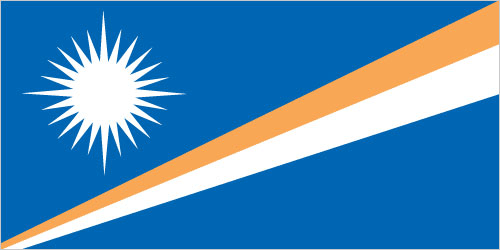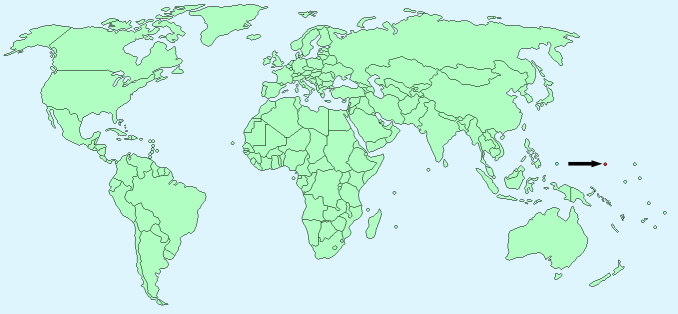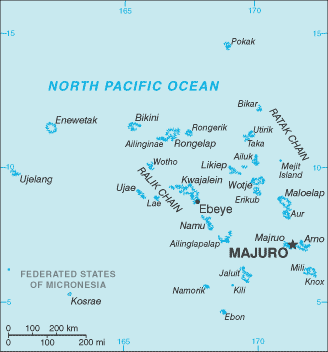Marshall Islands


Continent – Australasia, Oceania
Region – Pacific Islands
Size – 181 km²
Geography – collection of atolls
Language – Marshallese (official)
Religion – Protestant 54.8%, Assembly of God 25.8%, Roman Catholic 8.4%, Mormon 2.1%, other 8.9%
Monetary Unit – United States Dollar
Natural Resources – coconut products, marine products, deep seabed minerals
Agriculture – coconuts, tomatoes, melons, taro, breadfruit, fruits; pigs, chickens
Industry – copra, tuna processing, tourism, craft items

Neighbouring Countries – None
Population – 70,983 (2014 estimate)
Population Growth Rate – 1.72%
Average Life Expectancy – 72.58
Capital City – Majuro (31,000)
Highest Mountain – None
Longest River – None
Climate – tropical – hot all year round 24°C – 35°C
Yearly Rainfall – 170 cm (approx) mostly April to November
Plant Life – coconut palms, pandanus, breadfruit, citrus trees
Animal Life – rodents, pigs, turtles
Bird Life – mallard, gargarey, gadwall, black noddy, tufted duck, canvasback, sanderling
Marine Life – Porpoises, dolphins, whales, tuna
Harvard Reference for this page:
Heather Y Wheeler. (2015). Marshall Islands. Available: https://www.naturalhistoryonthenet.com/Facts_Figures/Country_Facts/marshall_islands.htm. Last accessed Tuesday, July 19, 2016
Facts and Figures Pages
